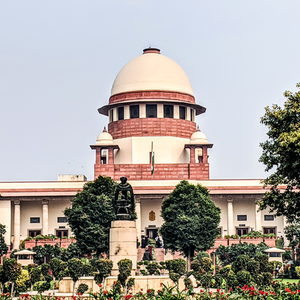Qualifications
Addition Qualification
Memberships
About
Altamash is a part of the dispute resolution practice group at Acuity Law. He advises clients on insolvency laws, arbitration matters, and debt recovery proceedings. He regularly represents clients before company law courts and the High Court of Bombay, in matters including institution and management of corporate insolvency resolution processes, avoidable transactions under the Insolvency and Bankruptcy Code, 2016, international and domestic arbitration and shareholder disputes under Indian companies act. Altamash is also a qualified patent agent and is committed to safeguarding and enhancing the domestic and international patent portfolio of our clients.
- Representing and advising a Japanese logistics and warehousing company in a Singapore-seated arbitration in successfully obtaining an arbitral award, followed by its enforcement in India (2023).
- Representing and advising clients in appeals before the Supreme Court and the Securities Appellate Tribunal challenging stock exchange rulings (2023).
- Representing and advising a Japanese international engineering consultancy services company in a shareholder’s dispute and subsequent settlement of ~INR 150 million (2022)
- Representing and advising an Indian security service provider company involving termination of services agreement of ~INR 120 million (2021)
- Representing and advising high net worth individuals declared as willful defaulters by banks (2020)*
- Representing and advising multiple operational creditors enforce their claims in insolvency proceedings before the NCLT and NCLAT (2019)*
- Advising a resolution applicant to strategize and submit a resolution plan under insolvency laws in the insolvency of a major steel manufacturer in India (2019)*
- Representing and advising a high net worth individual in litigating and settlement of investment related dispute in a real estate project in India (2019)*
- Advising a real estate company in taking charge of operations of an unfinished construction project in Pune which included negotiations and execution of various agreements with retailers such as license agreements, business conducting agreements, and lease agreements (2019)*
* Matters handled outside of Acuity Law
Articles

Revision of CIRP Regulations to Streamline Corporate Insolvency Resolution Process
On 15 February 2024, the Insolvency and Bankruptcy Board of India (IBBI) notified the Insolvency and Bankruptcy Board of India (Insolvency Resolution Process for Corporate Persons) (Amendment) Regulations, 2024 (read here) to streamline the corporate insolvency resolution process (CIRP). A summary of the key amendments are as follows: These amendments, effective from 15 February 2024, […]

Group of Companies Doctrine in Indian Arbitration Landscape: The Dust settles
One of the reasons why arbitration is a highly preferred mechanism for adjudicating commercial disputes is that it provides clarity to the parties with respect to the forum that will adjudicate over the disputes arising out of the agreement. However, in certain cases, a party to the arbitration may want to involve a non-signatory to […]

Supreme Court affirms equal treatment of homebuyers under the Insolvency and Bankruptcy Code, 2016
Introduction The financial implications for homebuyers in the context of the Insolvency and Bankruptcy Code, 2016 (Code) have been a subject of legal scrutiny. According to the Code, funds raised by a real estate company from a homebuyer or allottee are categorized as financial debt, granting them the status of financial creditors. This designation empowers […]

Contours of urgent interim relief under pre-institution mediation
Introduction Since its introduction by way of an amendment in 2018, Section 12A of Commercial Courts Act, 2015 (Act) has garnered significant attention, specifically regarding the mandatory requirement for pre-institution mediation. Further a question arose as to whether suits instituted without recourse to mandatory pre-institution mediation ought to be rejected upon an application being filed […]

Transactions under the Cape Town Convention exempted from the moratorium provisions of the Insolvency and Bankruptcy Code
The Ministry of Corporate Affairs by notification dated 03 October 2023 (read here) exempted transactions, arrangements or agreements relating to aircraft, aircraft engines, airframes and helicopters under the Cape Town Convention and Protocol from the moratorium provisions of the Insolvency and Bankruptcy Code, 2016. This notification will allow the aircraft lessors to reclaim the possession […]

SEBI Guidelines for Investor Protection Funds and Investor Services Funds
As per reports[i], India Market Capitalization accounted for USD 3,840.5 billion in September 2023 making it the world’s fourth largest market by value, surpassed only by the United States, China, and Japan. However, increased investor participation requires enhanced investor protection as well. In 2004, the Indian securities market regulator, SEBI, had issued comprehensive guidelines for […]

Unilateral appointment of arbitrator: A legal quandary
Indian Courts have consistently maintained the position that unilateral appointment of an arbitrator is legally untenable and bad in law. It was reasoned by the Courts that when one party unilaterally appoints an arbitrator, it creates an imbalance of power, leading to reasonable concerns about the arbitrator’s impartiality. As the independence and the impartiality of […]

Corporate Successor’s Criminal Liability in Banking Sector: Supreme Court clarifies the law
After a merger, successor corporations may find themselves liable for the criminal actions of their predecessors. This means that they might have to defend themselves against criminal charges related to transactions they were not directly part of, and this could occur years after the transactions took place. When these criminal charges are brought forward, the […]

Unregistered Agreement to Sell Admissible in Evidence
The Registration Act, 1908 (Registration Act) plays an important role when it comes to dealing with and managing information related to land and immovable property. Section 17(1) of the Registration Act provides for mandatory registration of certain documents. This mandatory registration safeguards the interests of all parties involved in property transactions. It establishes a foundation […]

Curable procedural defects and arbitration
The validity of arbitration proceedings may be called into question when procedural defects arise, and it may render the award susceptible to challenge. Procedural defects can occur at various stages of arbitration, such as the appointment of arbitrators, conduct of hearings, submission of evidence, or issuance of awards. When faced with procedural defects, parties involved […]

Enhanced powers of courts at pre-referral stage – a new trend!
Introduction One of the key objectives of the Arbitration and Conciliation Act, 1996 (Arbitration Act) is expeditious disposal of commercial disputes. However, it is often seen that arbitration is marred by the time spent in courts at the pre-referral stage, especially during the appointment of the arbitral tribunal. In this background, the Supreme Court in […]

Finfluencers regulation: Can SEBI bell the cat?
Introduction Securities and Exchange Board of India (SEBI), ensures transparency, fairness, and efficiency in the functioning of the Indian securities market. It regulates a diverse range of entities dealing with securities, including stock exchanges, brokers, depositories, and mutual funds; safeguards the interests of investors; promotes the development of the stock exchange, while also overseeing[i] the registration […]

Evolving jurisprudence of homebuyers under the Insolvency and Bankruptcy Code, 2016
Introduction A booming population, growing income and rapid urbanization has made India one of the fastest-growing major economies of this century. As per the World Bank[i], India’s GDP grew from USD 37 billion in 1960 to USD 3.18 trillion in 2021, registering an annual average growth over 5 per cent[ii]. India’s real estate sector has […]

NCLT and the Power to Recall
Review and recall are two crucial legal mechanisms that safeguard the principles of fairness and justice within a judicial system. Review entails examination of the judgment to rectify any evident errors or inaccuracies which might be the result of an oversight. Conversely, recall empowers the court to rectify its previous orders if any procedural errors […]

Breach of Settlement Agreement and Revival of Insolvency Application
Introduction In 2018, section 12A[i] was introduced in the Insolvency and Bankruptcy Code, 2016 (Code), to provide statutory recognition to settlement between the parties after the application to initiate the corporate insolvency resolution process (CIRP) has been admitted and allow withdrawal of the insolvency application. As of 31 March 2023,[ii], about 848 CIRPs have been […]

Arbitrability of Trademark Disputes
Introduction Arbitration has evolved over the last few years as a preferred mode for resolving commercial disputes. In general, arbitral tribunals can adjudicate any civil or commercial dispute, provided that (a) the dispute is covered under the arbitration agreement, (b) referred to arbitration by the parties involved and (c) is capable of being resolved by […]

Supreme Court reaffirms mandatory admission of insolvency in debt and default
The Insolvency and Bankruptcy Code (Code) provides the right to a financial creditor to make an application to the National Company Law Tribunal (NCLT) for initiation of corporate insolvency resolution process (CIRP) against a corporate debtor in the event the debtor fails to repay its debt owed to the creditor. The Code as well as […]

Insufficiently stamped agreement and the defeat of arbitration!
Introduction Expeditious and efficacious dispute resolution is essential for creating a business-friendly environment. In its 246th Report, the Law Commission of India observed an emerging trend towards judicial intervention in arbitration. To tackle the same and make India a pro-arbitration jurisdiction, it was recommended to amend the Arbitration and Conciliation Act, 1996 (Arbitration Act). Keeping […]

Reasoning’ the award
“Reason is the soul of justice. Any order passed, whether in the exercise of judicial or administrative powers vested in the authority, must be speaking.” – said the Delhi High Court[i] while holding that giving of reasons for decision is an essential attribute of judicial and judicious disposal of a matter. Indian courts have repeatedly emphasized on […]

The rise of “Consolidated Insolvency” in real estate sector
Introduction The Insolvency and Bankruptcy Code, 2016 (Code) provides for initiation of corporate insolvency resolution process (CIRP) against a corporate debtor in case of debt and default of such debt. However, there may be a situation, especially in companies engaged in development and construction of real estate projects when the resolution of debt or development […]

No withdrawal of insolvency after approval of Resolution Plan
Introduction The Insolvency and Bankruptcy Code, 2016 (Code), in its original form, did not include provisions with respect to withdrawal of an application for the initiation of corporate insolvency resolution process (CIRP). However, pursuant to various judicial pronouncements[i], Section 12A was inserted[ii] in the Code permitting withdrawal of CIRP with the approval of 90% voting […]

No look back period for fraudulent transactions under insolvency laws
Introduction The objective of the Insolvency and Bankruptcy Code, 2016 (Code) is to maximize the value of the assets of the corporate debtors and to ensure their revival. One vital aspect for reviving a debt-ridden company is reversal of avoidance transactions i.e., preferential, undervalued, defrauding creditors and extortionate transactions. The Code empowers the resolution professional […]

Arbitration clause in tax invoice is binding
An arbitration agreement is an agreement between the contracting parties through which disputes that might crop up between the parties are to be resolved by arbitration. It is not only a common but also a very crucial feature of commercial contracts of our times. Under the Arbitration and Conciliation Act, 1996 (Act), certain attributes[i] must […]

New development: NCLT’s power to direct forensic examination of documents
Introduction The provisions regarding ‘oppression and mismanagement’[i] in companies under the Companies Act, 2013 (Companies Act) are an integral part of the corporate governance structure in India. Where the affairs of the company are being conducted in a manner where the rights of some shareholders are being adversely affected or there is serious or continuous […]

Avoidance application survives insolvency process
Introduction The Insolvency and Bankruptcy Code, 2016 (Code) contains four types of avoidable transactions that are to be avoided, otherwise it would affect the financial position of the corporate debtor – preferential, undervalued, defrauding creditors and extortionate transactions. The Code mandates that the Resolution Professional / the Liquidator (Insolvency Professional) should determine if the corporate debtor […]

‘Seat’ of arbitration can be determined from the purpose of the contract
In arbitration, the ‘seat’ mentioned in the arbitration agreement determines the court that would exercise supervisory jurisdiction over the arbitral proceedings. As parties may be required to approach a court for appointment of arbitrator or for seeking interim relief or for taking directions to seek evidence, etc., the ‘seat’ is an important facet of the […]

NCLT clarifies: Interim moratorium not applicable to future liabilities
Introduction In India, prior to the Insolvency and Bankruptcy Code, 2016 (Code), insolvency proceedings against individuals used to be governed by the Presidency Towns Insolvency Act, 1909 and the Provincial Insolvency Act, 1920. While, the Presidency Towns Insolvency Act, 1909 was applicable to the erstwhile presidency towns such as Calcutta, Bombay and Madras, the Provincial […]

No insolvency when arbitration award is in execution
The Insolvency and Bankruptcy Code, 2016 (Code) was introduced as a one stop solution for resolving insolvencies, which previously was a long-drawn process that did not offer an economically viable arrangement. In Swiss Ribbons Pvt. Ltd. v. Union of India, the Supreme Court of India, while upholding the constitutional legitimacy of the Code, emphasized that […]

Leasehold right: An intangible asset
Introduction The primary object of the Insolvency and Bankruptcy Code, 2016 (Code) is the revival of the corporate debtor undergoing insolvency process and to keep it running as a going concern. To achieve this objective, the Code prescribes the imposition of a moratorium upon initiation of corporate insolvency resolution process and casts a duty on […]

New Development: Arbitrability of fraud allegations!
The adjudication of claims arising out of private civil or commercial arrangements between parties is ordinarily capable of being referred to arbitration. The underlying principle of arbitration remains that private arrangements between parties give rise to a right in personam (against a particular person), which is exercisable only between the parties to such an arrangement and […]

Suits and exemption from mandatory pre-institution mediation
Introduction Section 12A of the Commercial Courts Act, 2015 (Act) mandates pre-institution mediation in case of a commercial suit above a specified value, unless the suit contemplates urgent interim reliefs. The Supreme Court of India in M/s. Patil Automation Private Ltd. v. Rakheja Engineers Private Ltd.1 (Patil Automation Case) held that pre-institution mediation is mandatory and any […]

Resolving the Conundrum Between the MSMED Act, 2006 and the Arbitration and Conciliation Act, 1996
Introduction The Micro, Small, and Medium Enterprises Development Act, 2006 (MSMED Act) was enacted to ensure timely and smooth flow of credit to small and medium enterprises while promoting, developing and enhancing the competitiveness of micro, small and medium enterprises. This came at a time when the Arbitration and Conciliation Act, 1996 (Arbitration Act) had […]

CPC not applicable for granting interim reliefs under Arbitration Act
In India, procedural law relating to civil and commercial disputes is governed by the Code of Civil Procedure, 1908 (CPC). The CPC lays down the procedure for administration of civil proceedings including rules for filing of suits, written statements, filing of documents, evidence, permissible reliefs, and enforcement. While CPC is applicable to every commercial dispute […]

Supreme Court rejigs priority of tax dues under IBC
The Insolvency & Bankruptcy Code, 2016 (Code) provides a structure for realisation of debts owed to the creditors in the event of liquidation. In this structure, secured creditors are given preference to recover their dues over statutory dues / crown debts owed to the State. However, recently in State Tax Officer v. Rainbow Papers Ltd. […]

IBBI prescribes fee structure for insolvency professionals
Under the Insolvency and Bankruptcy Code, 2016 (Code), the resolution professional or the interim resolution professional (collectively referred as RP) is vested with the responsibility of running the business of the corporate debtor as a going concern and conducting the corporate insolvency resolution process (CIRP). The RP must also ensure that CIRP is conducted in […]

Relevance of “Readiness and willingness” for grant of specific performance
Specific performance of a contract refers to a remedy wherein the court compels the defaulting party to perform its obligations under the contract. This remedy has emerged as a form of equitable relief and does not require an express contractual provision. The Specific Relief Act, 1963 (Act) is the governing statute for specific performance as it […]

KMP norms: Do they apply to private companies?
In 2005, the Government of India had constituted an expert committee headed by Dr. J.J. Irani to advise on revising and modernizing the Companies Act, 1956. The committee in its report (JJ Irani Report)[i] gave its views on various issues including on appointment, duties and obligations of the Key Managerial Personnel (KMP). Pursuant to the recommendations […]

Demystifying arbitral tribunal’s power to make changes to the arbitral award
An arbitral tribunal is a creation of a contract between parties. The tribunal is brought to life when the parties decide to refer their inter-se disputes to the tribunal and once the final award is passed, the tribunal’s mandate comes to an end. However, under the Arbitration and Conciliation Act, 1996 (Act), termination of the […]

Commercial wisdom of the liquidator upheld by the Supreme Court
Under the Insolvency and Bankruptcy Code, 2016 (Code), if a corporate debtor is unable to pay its debts, then insolvency resolution proceedings (CIRP) may be initiated against the corporate debtor and attempts are made to revive the corporate debtor by inviting resolution plans. If the revival process fails, the corporate debtor must be liquidated. The […]

Power of arbitral tribunal to modify its interim orders
The parties to arbitration have limited remedies under the appeal provision against the orders of the arbitral tribunal. While the Arbitration and Conciliation Act, 1996 (Act) contemplates appeal from interim orders of the arbitral tribunal to courts, such orders cannot be reviewed or recalled by the arbitral tribunal itself. This brings one to the question […]

Affixing Liability: Lifting the Corporate Veil Under Insolvency Law in India
Under corporate law, it is a well settled principle that a company has a juristic existence which is independent of its shareholders. An exception to this principle is the doctrine of lifting of corporate veil i.e., looking past the separate identity of the company and affixing liability on the actual perpetrators i.e., the management of […]

Is accumulated interest a part of operational debt in Indian Insolvency laws?
A key concern in respect of the Insolvency and Bankruptcy Code, 2016 (Code) since its inception has been the differential treatment of operational creditors and financial creditors. For context, financial creditors have a purely financial arrangement with the corporate debtor, while operational creditors are those who are owed money by the corporate debtor for the […]

Vidarbha Industries: Extending the power of NCLT under Insolvency Law
The Insolvency and Bankruptcy Code (Code) provides the right to a financial creditor to make an application to the National Company Law Tribunal (NCLT) for initiation of corporate insolvency resolution process (CIRP) against a corporate debtor in the event the debtor fails to repay its debt owed to the creditor. The Code as well as […]

Delhi High Court on ‘close family relationship’ between arbitrators and parties
Introduction One of the cardinal rules of natural justice is that no one should act as a judge in a case where they have a personal interest. This is because a judge may harbor some bias (or perceived to have some bias) which may ultimately affect an otherwise equitable outcome in cases where the judge […]

Supreme Court clarifies the rights of recovery certificate holders under the Insolvency and Bankruptcy Code
The Insolvency and Bankruptcy Code, 2016 (Code) was enacted to consolidate and amend the laws relating to reorganization and insolvency resolution of corporate persons. However, the overlap of the Code with the erstwhile laws relating to insolvency and recovery of debts, such as the Securitization and Reconstruction of Financial Assets and Enforcement of Security Interest […]

Insolvency Law: Decree Holder not at par with a Financial / Operational Creditor
Introduction The Insolvency and Bankruptcy Code, 2016 (“Code”) was enacted with a primary objective of timebound reorganisation and insolvency resolution of corporate debtors. Under the Code, financial or operational creditors of a corporate debtor can approach the National Company Law Tribunal (“NCLT”) to initiate insolvency resolution process against a corporate debtor upon occurrence of a default […]

Homebuyers as financial creditors: time for a rethink?
Introduction The Insolvency and Bankruptcy Code, 2016 (“Code”) was introduced in the year 2016 and since its introduction it has gone through a spate of amendments. Pursuant to the Insolvency and Bankruptcy Code (Second Amendment) Act, 2018 (“2018 Amendment Act”), allottees of real estate projects (“Homebuyers”) have been included within the ambit of “financial creditors” […]

NCLAT resolves jurisdictional conundrum of NCLT vis-à-vis Personal Guarantor
Recent conflicting judgments of the National Company Law Tribunal (NCLT) and the High Courts had given rise to ambiguity regarding the jurisdiction of NCLT vis-à-vis personal guarantors under the Insolvency and Bankruptcy Code, 2016 (Code). The issue of the correct forum for insolvency proceedings of a personal guarantor arises where an application seeking insolvency or […]

The Ambiguity on Jurisdiction of NCLT and DRT Under IBC
The problem of Non-performing Assets (NPAs) in the Indian banking system is one of its foremost predicaments. In order to allow lending institutions to recover such NPAs in an expeditious manner, the Indian Government established Debt Recovery Tribunals (DRT) under the Recovery of Debts Due to Banks and Financial Institutions Act, 1993 (RDDBFI Act), and […]

Opening Pandora’s Box: Non-Admission of Defaulting Borrower!
The Insolvency and Bankruptcy Code, 2016 (Code) has played a significant role in rescuing financially distressed companies as compared to the former insolvency law regimes which were provided in various statues having different objectives and processes. The initial success of the Code is attributable to various factors including the manner in which the Indian judiciary […]

Right of Indian Parties to choose Foreign Seated Arbitration
Supreme clarifies legal dilemma on right of Indian parties to choose a foreign seat of arbitration On 20 April 2021, the Supreme Court vide its judgment in PASL Wind Solutions Private Limited v. GE Power Conversion India Private Limited finally laid to rest the quandary on whether two Indian parties can adopt a foreign seat of arbitration. The three-judge bench of the Supreme Court held that nothing […]

15 Key Developments in IBC 2016 (in 2019)
In the winter of 2015, the Indian Legislature sought to tackle the persistent problem of bad debts affecting Indian financial institutions and trade creditors by enacting the Insolvency and Bankruptcy Code, 2016 (“Code”), which was finally notified in May 2016. The key purpose of the enactment was to consolidate and amend the laws relating to reorganization and […]
DEALS

NABVENTURES invests in Vilcart
We are pleased to announce that Acuity Law acted as the legal advisor to NABVENTURES Limited and NABVENTURES FUND I (together referred to as NABVENTURES) in its investment in Vilcart Solutions Pvt. Ltd (Vilcart). NABVENTURES Fund I is managed by NABVENTURES Limited, a wholly owned subsidiary of the National Bank for Agriculture and Rural Development (NABARD). Vilcart is a start-up company which is re-defining the rural unorganised retail industry with the use of technology. […]
